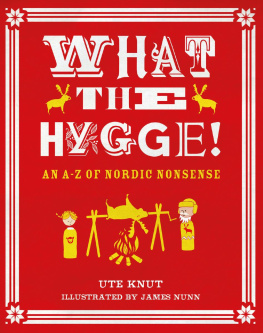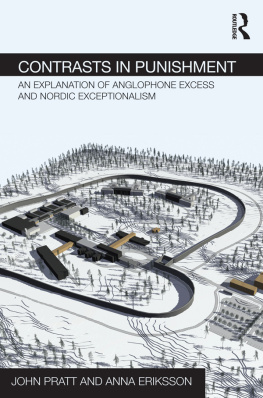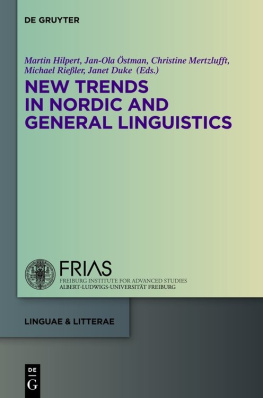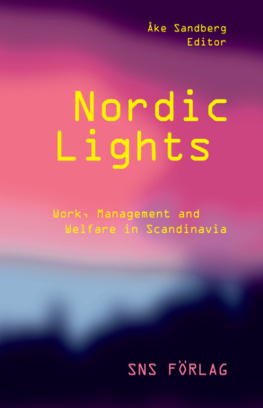
Penal Exceptionalism?
In the growing field of comparative criminal justice, the Nordic countries are regularly used as exceptions to the global move towards growing rates of imprisonment and tougher, less welfare-oriented crime-control policies.
Why are the Nordic penal institutions viewed as so different from a non-Nordic vantage point? Are Nordic prisons and penal policies in fact positive exceptions to the general rule? If they are, what exactly are the exceptional qualities, and why are the Nordic societies lucky enough to have them? Are there important overlooked examples of Nordic bad practice in the penal area? Could there be a specifically Nordic way of doing prison research, contributing to the gap between internal and external perspectives?
In considering among others the above questions, this book explores and discusses the Nordic jurisdictions as contexts for the specific penal policies and practices that may or may not be described as exceptional.
Written by leading prison scholars from the Nordic countries as well as selected researchers from the English-speaking world looking in, this book will be particularly useful for students of criminology and practitioners across the Nordic countries, but also of relevance in a wider geographical context.
Thomas Ugelvik is a post-doctoral research fellow at the Department of Criminology and Sociology of Law at the University of Oslo, Norway. His Ph.D. is an ethnography of prisoner-subjectivation processes in and through the everyday life and power struggles of the institution. His research interests also include crime and the media, gender issues, and cultural criminology. He has published on violence against prison officers, powerresistance relationships in prison, and masculinity theory.
Jane Dullum is a post-doctoral research fellow at the Department of Criminology and Sociology of Law at the University of Oslo, Norway. In her Ph.D. she analysed the development of the psychiatric institutions in Norway, with a special focus on the decarceration of the mentally ill. She has done research on economic crime, restorative justice, topics regarding the rule of law, prisons and prison education, and miscarriages of justice.
Penal Exceptionalism?
Nordic prison policy and practice
Edited by Thomas Ugelvik
and Jane Dullum
First published 2012
by Routledge
2 Park Square, Milton Park, Abingdon, Oxon, OX14 4RN
Simultaneously published in the USA and Canada
by Routledge
711 Third Avenue, New York, NY 10017
Routledge is an imprint of the Taylor & Francis Group, an informa business
2012 Thomas Ugelvik and Jane Dullum; individual chapters, the contributors
All rights reserved. No part of this book may be reprinted or reproduced or utilized in any form or by any electronic, mechanical, or other means, now known or hereafter invented, including photocopying and recording, or in any information storage or retrieval system, without permission in writing from the publishers.
Trademark notice: Product or corporate names may be trademarks or registered trademarks, and are used only for identification and explanation without intent to infringe.
British Library Cataloguing in Publication Data
A catalogue record for this book is available from the British Library
Library of Congress Cataloging in Publication Data
Nordic prison practice and policy, exceptional or not? : exploring penal exceptionalism in the Nordic context / edited by Thomas Ugelvik and Jane Dullum.
p. cm.
1. CorrectionsScandinavia. 2. PrisonsScandinavia. I. Ugelvik, Thomas.
II. Dullum, Jane, 1960
HV9718.N67 2011
365.948dc22 2011000228
ISBN: 978-0-415-66869-9 hbk
ISBN: 978-0-415-67295-5 pbk
ISBN: 978-0-203-81327-0 ebk
Typeset in Times New Roman
by Keystroke, Station Road, Codsall, Wolverhampton
Contents
Contributors
Robert Andersson has a Ph.D. in criminology and works as a senior lecturer in criminology at the Institute of Police Education, Linnus University, Vxj, Sweden. His publications mostly concern crime policy and his latest publication, co-written with Roddy Nilsson, Svensk Kriminalpolitk [Swedish crime policy] is a study of Swedish crime policy during the twentieth century.
Anders Bruhn is an associate professor in sociology at rebro University, Sweden. His main field of research is work and organization. He has published on individualization and collective action in working life, work environment, work environment regulation and inspection, organizational and occupational change, and prison work.
Ben Crewe is a senior research associate at the Institute of Criminology, University of Cambridge. He has published on various aspects of prison life, including staffprisoner relationships, the drugs economy within prison, and the inmate code. His most recent book, The Prisoner Society: Power, Adaptation and Social Life, was published in 2009.
Anna Eriksson is a lecturer in criminology at Monash University, Melbourne, Australia. Originally from Sweden, she has conducted research in Northern Ireland, England, and Australia on restorative justice and alternative approaches to punishment. She is the co-investigator with Professor John Pratt on the Scandinavian Exceptionalism project.
Per Kristian Granheim is an adviser and teacher at the Correctional Service of Norway Staff Academy. Since 2007 he has been working on the study The quality of life in Norwegian closed prisons. He has an MD in social psychology from the Norwegian University of Science and Technology.
David A. Green is an assistant professor of sociology at John Jay College of Criminal Justice, City University of New York, and a 201011 Fellow at the Straus Institute for the Advanced Study of Law and Justice, New York University. He won the European Society of Criminologys Young Criminologist Award in 2007 and the 2009 British Society of Criminology Book Prize for his first book, When Children Kill Children: Penal Populism and Political Culture (2008).
Andrew M. Jefferson is a senior researcher at the Rehabilitation and Research Centre for Torture Victims in Copenhagen, Denmark, specializing in prison practices and justice sector reform beyond the West. He is a co-editor of State Violence and Human Rights: State Officials in the South and a co-founder of the Global Prisons Research Network.
Berit Johnsen is a researcher at the Correctional Service of Norway Staff Academy. Since 2007 she has been working on the study The quality of life in Norwegian closed prisons. Besides prison sociology, her research interests include new criminal sanctions in the Norwegian Criminal Code, such as preventive detention and the drug court programme.
Alison Liebling is a professor of criminology and criminal justice at the University of Cambridge and Director of the Institute of Criminologys Prisons Research Centre. She has published several books, including: Suicides in Prison (1992); Prisons and their Moral Performance: A Study of Values, Quality and Prison Life (2004); and (with Shadd Maruna) The Effects of Imprisonment (2005). She has recently published the second edition of








